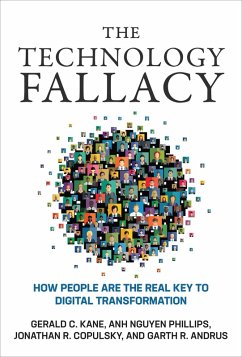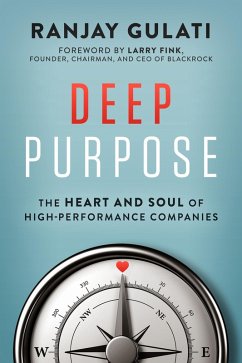
Leadership in Complexity and Change (eBook, ePUB)
For a World in Constant Motion

PAYBACK Punkte
11 °P sammeln!
If we needed a reminder that the world is complex and in constant motion, then 2020 certainly delivered. Suddenly, the inherent uncertainties and ambiguities of leadership were starkly revealed for all to see as the dynamics of complexity and change played out intensively, and very publicly, on the global stage.Leadership in Complexity and Change draws on complexity science to paint a picture of a world in constant motion, where leadership is enacted in the midst of complexity and continuous change. We must learn to engage with complexity. If not now, when?Part I of this insightful book brings...
If we needed a reminder that the world is complex and in constant motion, then 2020 certainly delivered. Suddenly, the inherent uncertainties and ambiguities of leadership were starkly revealed for all to see as the dynamics of complexity and change played out intensively, and very publicly, on the global stage.
Leadership in Complexity and Change draws on complexity science to paint a picture of a world in constant motion, where leadership is enacted in the midst of complexity and continuous change. We must learn to engage with complexity. If not now, when?
Part I of this insightful book brings complexity science to life by considering the practical challenges of complexity and its implications for leadership. Part II considers how leaders can reinvigorate existing tools and approaches with a new mindset, before offering some new tools and practices for learning informed leadership. Part III concludes by considering the person in the practice of leadership in complexity and change. Key ideas are presented through mini-cases and practical examples embedded throughout the book.
This book will help executives, managers, and professionals
Events around the book
Link to a De Gruyter Online Event in which the author Sharon Varney together with Jean Boulton, Leading authority on complexity theory and its implications for the social world, and Ian Rodwell, Head of Client Knowledge and Learning at Linklaters LLP, discuss what it means to be an effective leader in an uncertain world and that one should develop the ability to keep an eye on the emerging future:
https://youtu.be/vSi732fdqbc
Leadership in Complexity and Change draws on complexity science to paint a picture of a world in constant motion, where leadership is enacted in the midst of complexity and continuous change. We must learn to engage with complexity. If not now, when?
Part I of this insightful book brings complexity science to life by considering the practical challenges of complexity and its implications for leadership. Part II considers how leaders can reinvigorate existing tools and approaches with a new mindset, before offering some new tools and practices for learning informed leadership. Part III concludes by considering the person in the practice of leadership in complexity and change. Key ideas are presented through mini-cases and practical examples embedded throughout the book.
This book will help executives, managers, and professionals
- recognise where some of the challenges come from
- understand why those challenges persist
- engage with the dynamic patterning of organisational life
- appreciate the scope for leadership
- recognise the choices that can be made
- choose how to manage themselves
Events around the book
Link to a De Gruyter Online Event in which the author Sharon Varney together with Jean Boulton, Leading authority on complexity theory and its implications for the social world, and Ian Rodwell, Head of Client Knowledge and Learning at Linklaters LLP, discuss what it means to be an effective leader in an uncertain world and that one should develop the ability to keep an eye on the emerging future:
https://youtu.be/vSi732fdqbc
Dieser Download kann aus rechtlichen Gründen nur mit Rechnungsadresse in A, B, BG, CY, CZ, D, DK, EW, E, FIN, F, GR, HR, H, IRL, I, LT, L, LR, M, NL, PL, P, R, S, SLO, SK ausgeliefert werden.













